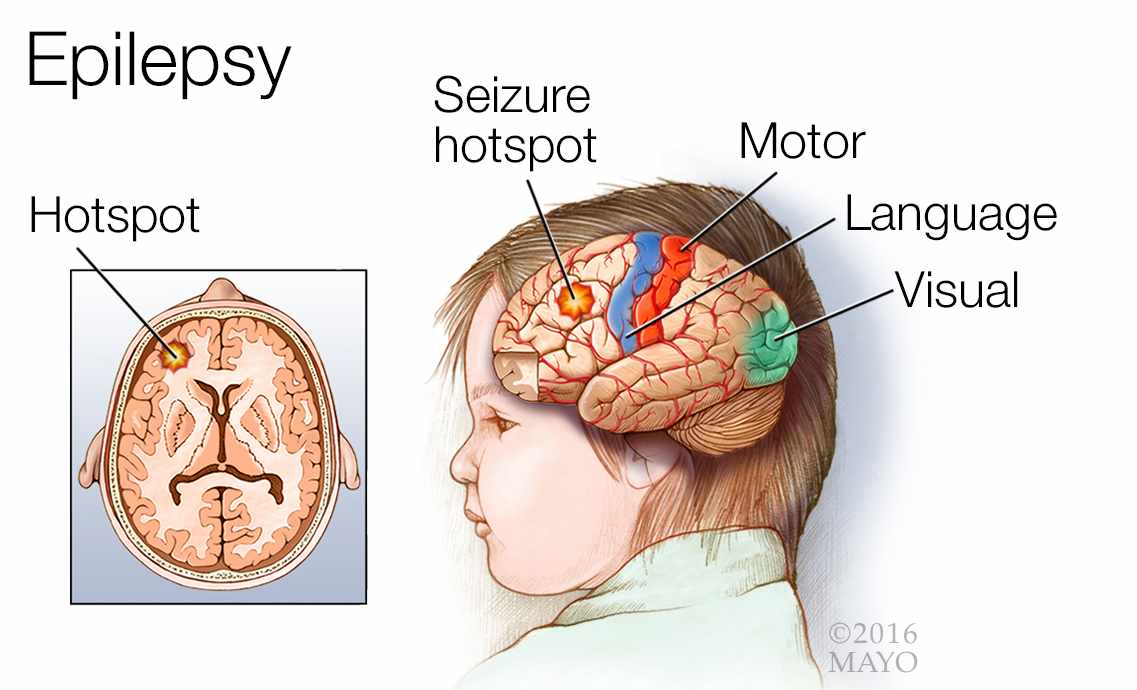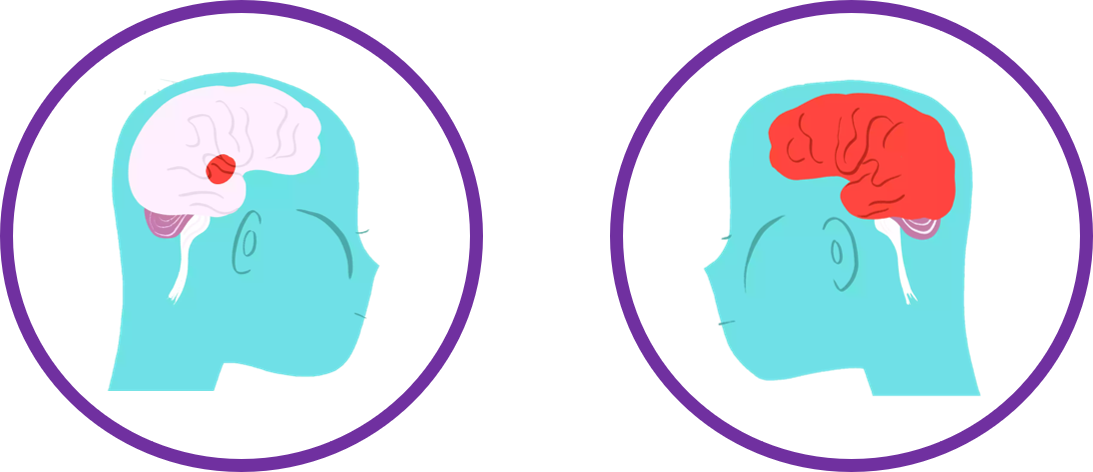Epilepsy is a group of neurological disorders characterized by recurrent epileptic seizures. Epileptic seizures are episodes that can vary from brief and nearly undetectable periods to long periods of vigorous shaking. These episodes can result in unusual behavior, movements, or experiences, and sometimes a lack of awareness or loss of consciousness.

Epilepsy is diagnosed when you've had two or more seizures and there's no medical condition behind them, such as alcohol withdrawal or low blood sugar. People with epilepsy experience recurrent seizures, because a sudden surge of electrical activity in the brain causes a temporary disturbance in the messaging systems between brain cells. Every function in the human body is triggered by messaging systems in our brain. Epilepsy results when this system is disrupted due to faulty electrical activity.
Epilepsy can affect anyone, at any age, sometimes runs in families, and can be the result of a brain injury. However, often the cause is unknown.
Seizures are the only symptom of epilepsy. Epilepsy is defined as having "two or more unprovoked seizures," according to Johns Hopkins Medicine.
Some people have a single seizure, or seizures that are not linked to epilepsy. According to the United Kingdom's Epilepsy Society, nonepileptic seizures are not due to electrical activity in the brain. The causes can be physical, emotional, or psychological.
There are also different types of seizure. Seizures may vary between people with epilepsy, so in two individuals, the condition may look different. For this reason, it can be called a spectrum disorder.

| Focal Seizures | Generalized Seizures |
|---|---|
| Focal aware seizures | Absence seizures |
| Focal impaired awareness seizures | Tonic seizures |
| - | Atonic seizures |
| - | Myoclonic seizures |
| - | Clonic seizures |
| - | Tonic-clonic seizures |
*More information on type of epilepsy here: Symptoms of Epilepsy